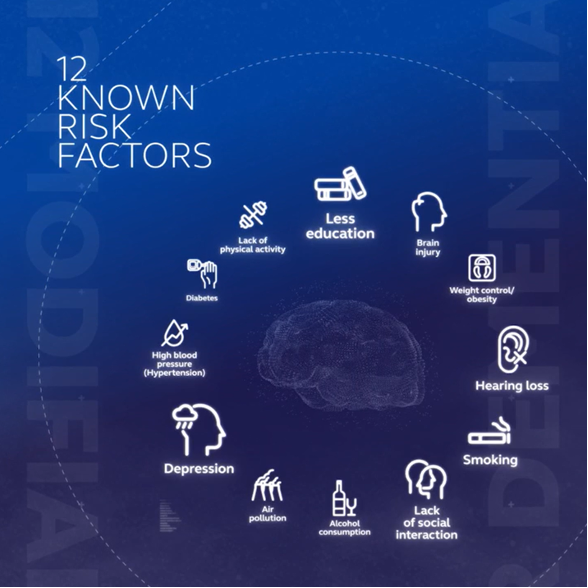What is “brain health”?
Good brain health is essential to help individuals thrive and perform in all aspects of life. “Brain health” can be referred to as the “preservation of optimal brain integrity and mental and cognitive function” in combination with the absence of neurological disease (1) It is affected by almost all events from childhood onwards and it is known that a large number of the neurological diseases associated with poor brain health may be preventable by making positive adjustments to various lifestyle factors across the life course(1,2).
Why is brain health education important?
The link between contact sports and brain health is currently under increasing scrutiny.
Recently, World Rugby launched a “Brain Health Initiative” in collaboration with Brain Health Scotland and International Rugby Players (IRP), with input from a number of leading researchers and clinicians in the area and athletes themselves. This is amidst rising awareness of the need to protect athletes’ brain health(3) and in response to calls from players themselves wanting more information. This global brain health education campaign focuses on providing athletes – past, present and future- with information on optimising brain health, including education about 12 known modifiable risk factors for poor brain health(3-4).
The Brain Health Survey which collated the views of 1000 representatives across Scotland showed that whilst individuals attached importance to looking after their brain health, half of respondents were not taking active steps to look after their brain health and a quarter of people could not name a single action to help(5). Furthermore, recent research has shown some field-based athletes have an increased risk of cardiovascular disease (CVD)(6). CVD is a key contributor for poor brain health which many individuals may not be aware of(4). The combination of the desire and importance of brain health education from the Brain Health Survey and the desire athletes and their networks have for more practical strategies and information, highlights the need for nationally available brain health education in sport and beyond.

Figure 1: The Modifiable Risk Factors of dementia related illnesses, courtesy of World Rugby(3,4)
The future of ‘brain health’
Leaders of the Brain Health Movement, such as Brain Health Scotland (Brain Health Scotland was established to provide equitable access to brain health services across Scotland, working with the NHS and partners), attach importance of looking after one’s brain health to the same degree as maintaining one’s physical and mental health(2). In fact, physical and mental health is closely interlinked with brain health. In addition to the education work, the aim of the movement is to provide a patient focused approach to brain health(2).With time, this will involve clinics combining risk factor profiling and early disease detection to form personalised prevention plans(2,3). Further evidence based approaches to learning and behaviour change are needing to be adopted to support successful knowledge translation in this area and it is known a suite of further evidence-based educational strategies are within the pipeline from the teams mentioned above.
Conclusions
- The Brain Health Initiative highlights the importance of brain health and the many factors that can affect it(4)
- Supporting brain health across the life course involves addressing 12 modifiable risk factors(6)
- Educational resources have and are being developed to help athletes and their support networks to optimise their brain health.
Brain Health Resources
A range of pan-sport educational resources can be found at www.brainhealthscot. These resources can help you build your brain health toolkit. Furthermore, on the website you can join the brain health community to be the first to access the latest developments, training and education opportunities(2).
Author and Affiliations:
Christopher Jervis (Final Year Medical Student, University of Edinburgh)
The author reports no competing interests.
References:
1 Wang Y, Pan Y, Li H. What is brain health and why is it important? BMJ. 2020;371:m3683
2 Brain Health Scotland 2021. https://www.brainhealth.scot/sport
3 World Rugby and International Rugby Players launch global brain health education campaign. World Rugby. https://www.world.rugby/news/671057/world-rugby-and-international-rugby-players-launch-global-brain-health-education-campaign
4 Livingston G, Huntley J, Sommerlad A et al. Dementia prevention, intervention, and care: 2020 report of the Lancet Comission. The Lancet. 2020;396(10248):413-446
5 Ipsos MORI. Brain Health Survey. 2020. https://d6a732ea-0222-4f4e-bec4-6ac629ae59bc.filesusr.com/ugd/a3f95c_8826599c29c04d66b4eb266d5d887f22.pdf
6 McHugh C, Hind K, Cunningham J. A career in sport does not eliminate risk of cardiovascular disease: a systematic review and meta-analysis of the cardiovascular health of field based athletes. J Sci Med Sport. 2020;23(9):792-799